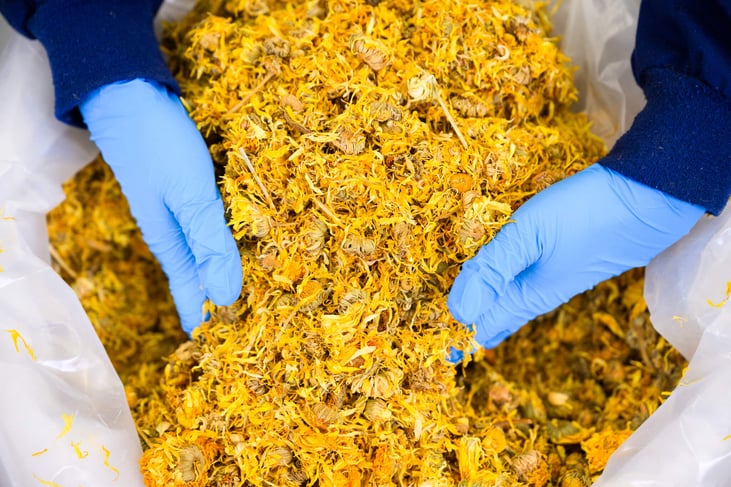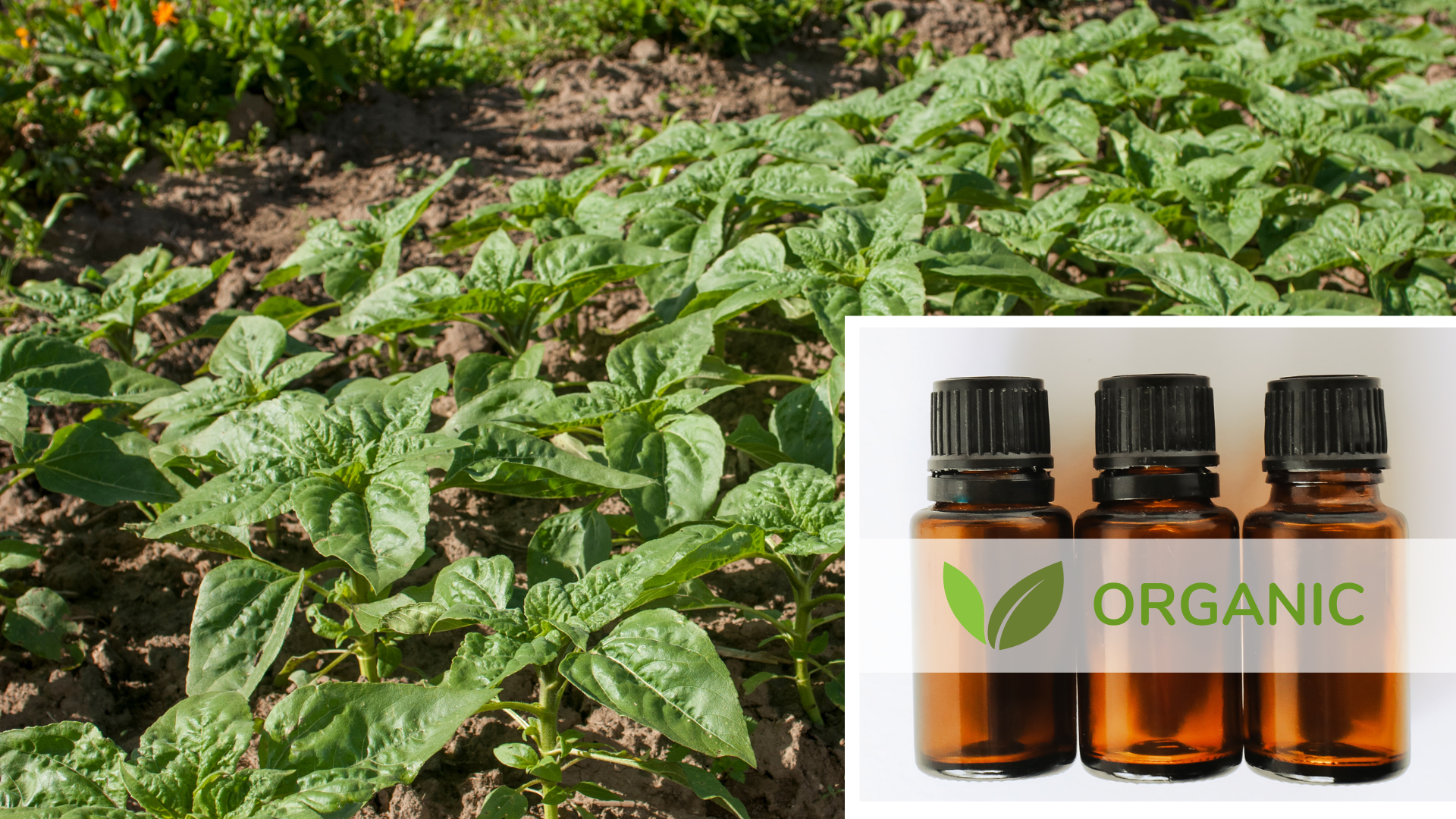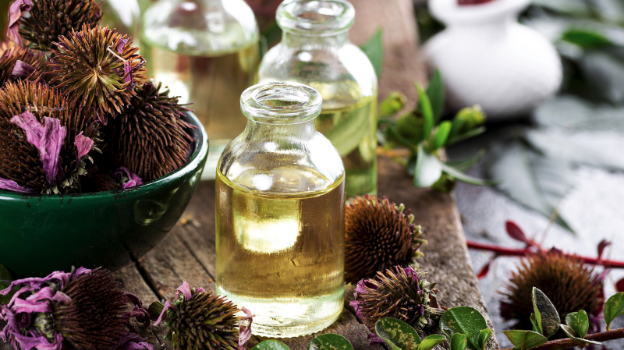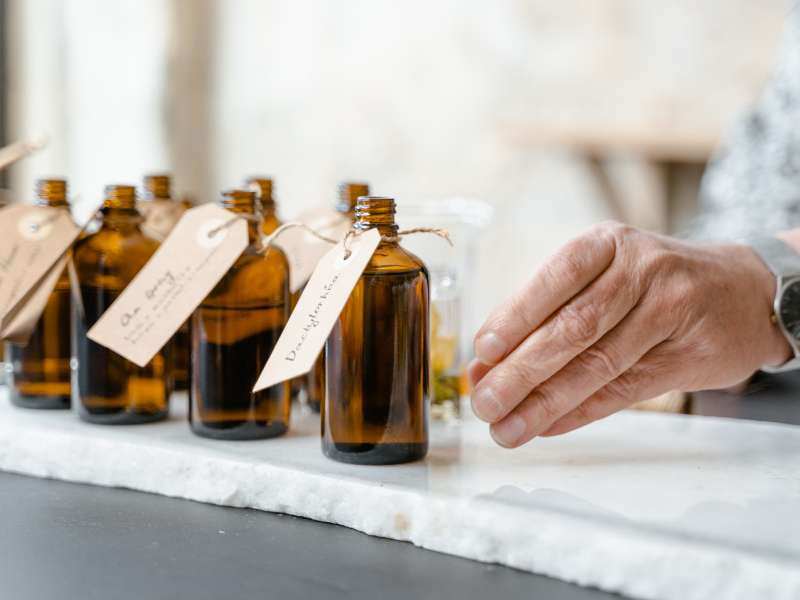In the pursuit of wellness, aromatherapy can play an essential role. Essential oils are a practical daily wellness support and are used to support restful sleep, mental calm, ease muscle strain after exercise, and more. Amid the marketing hype and the premium price tags, consumers ask the question, are organic and pesticide-free essential oils worth the investment?
Benefits of Organic Essential Oils
At ACHS and The Apothecary Shoppe, our commitment revolves around utilizing the inherent potency of essential oils and herbs. We stand as a symbol of reliability, offering premium-quality products, holistic education, and expert guidance on safe usage. In addition to supporting our students and graduates, The Apothecary Shoppe is a resource available to the public to support our community of health-conscious and sustainability-minded customers and businesses seeking holistic modalities such as aromatherapy and herbal medicine to promote wellness.
One of the cornerstones of our values lies in sourcing high-quality, organic, and pesticide-free essential oils and herbs. Why this emphasis on organic? The answer lies in purity. Organic and pesticide-free essential oils, derived from plants grown without synthetic pesticides or fertilizers, purportedly retain a higher concentration of beneficial compounds. This purity can contribute to a more potent and effective oil, free from potentially harmful residues.1
However, the term "organic" in the realm of essential oils often carries a premium price. This price variance prompts a deeper inquiry into whether this elevated cost is genuinely justified. To unpack this, let's consider a few critical aspects:
Purity and Potency
Organic and pesticide-free essential oils, by virtue of their cultivation methods, possess active compounds. This may translate to enhanced therapeutic benefits. An example of this is shown in a study done on Fennel Bulb crop yield when using organic manure vs non-organic manure.2 The study clearly shows a higher yield in bulbs, meaning a more fruitful crop, and the bulbs themselves had a clear increase in the most important constituents making it a “high-quality” crop.

Pictured: Calendula (Calendula officinalis) being quality inspected and sorted at our on campus Apothecary Shoppe facility.
ACHS and The Apothecary Shoppe pride themselves on their commitment to providing therapeutically active essential oils. This dedication ensures that ACHS students have access to a wide range of fresh, high-quality products to support their studies in aromatherapy, herbal medicine, holistic nutrition, and integrative health. By incorporating these premium essential oils and herbs in experiential practical lab kits for courses, students can enhance their learning experience and deepen their understanding of natural remedies and holistic wellness practices. Additionally, the focus on therapeutically active oils underscores the importance of quality and efficacy, aligning with ACHS's mission to empower students with the tools and knowledge they need to make a positive impact in the field of holistic health and wellness.
Sustainability and Ethics
Opting for organic oils aligns with environmentally friendly practices and supports ethical farming methods. Consumers help drive demand and support for sustainable agriculture by choosing these oils while also reducing their exposure to potentially harmful chemicals.

Pictured: ACHS Founder Dorene Petersen harvesting cloves in Indonesia.
What Does “Certified Organic” Really Mean?
Organic refers not only to the food and essential oil itself but also to how it is produced and processed. Organic production is based on a system of farming that mimics natural ecosystems and maintains and replenishes the fertility and nutrients of the soil.3
One important note, even "certified organic" does not always mean pesticide-free. There are allowable pesticides within organic standards and also allowable thresholds. At ACHS and The Apothecary Shoppe, we have a zero-tolerance threshold for pesticides in the essential oils we carry, something that sets us apart from most other retailers.
How to Verify Organic Essential Oil Purity
The authenticity of organic certification can vary across suppliers. Some may adhere strictly to organic standards, while others might exploit the label without meeting the true criteria. Vigilance in sourcing from reputable and certified suppliers becomes crucial in ensuring authenticity.
Purchasing organic products presents multifaceted benefits encompassing personal health and environmental stewardship. Organic agriculture prioritizes sustainable practices, avoiding synthetic pesticides and fertilizers in favor of natural methods that nurture soil health and biodiversity. Research has consistently shown that organic foods contain fewer pesticide residues, reducing potential health risks associated with exposure to harmful chemicals. For instance, a study published in the journal "Environmental Health Perspectives" found that organic diets significantly lower children's dietary exposure to organophosphorus pesticides.4 Moreover, organic farming promotes carbon sequestration and minimizes environmental pollution, contributing to broader efforts in combating climate change and preserving ecosystems.5 By supporting organic producers, consumers not only prioritize their own well-being but also contribute to a more sustainable food system that safeguards the planet for future generations.
To be sure an essential oil is pesticide-free, always purchase from a trusted source who can provide independent testing to verify pesticide levels.
Why We Offer Organic and Pesticide-Free at ACHS and The Apothecary Shoppe
At ACHS and The Apothecary Shoppe, we advocate for informed choices. It's about empowering our community with knowledge to make conscious decisions aligned with their wellness goals. The journey towards holistic well-being involves not just the oils themselves but also the knowledge, support, and conscious choices that accompany them.
Disclaimer: This content is for educational purposes only and is not intended to be medical advice. It is not intended to treat, diagnose, cure, or prevent disease. This article has not been reviewed by the FDA. Always consult with your primary care physician or naturopathic doctor before making any significant changes to your health and wellness routine.
Sources:
(1) Cáceres, Daniel M. “(PDF) Organic farming and the sustainability of agricultural systems.” ResearchGate, https://www.researchgate.net/publication/222545656_Organic_farming_and_the_sustainability_of_agricultural_systems
(2) Elateeq, Ahmed A. “Effect of Organic Manure and Plant Growth Promoting Microbes on Yield, Quality and Essential Oil Constituents of Fennel Bulb ( Foeniculum vulgare Mill.).” Journal of Ecological Engineering, 1 May 2022, http://www.jeeng.net/Effect-of-Organic-Manure-and-Plant-Growth-Promoting-Microbes-on-Yield-Quality-and,147252,0,2.html#
(3) Oregon Tilth - Consumer & Labeling FAQ.” Oregon Tilth, https://tilth.org/wp-content/uploads/2015/01/ConsumerLabeling-FAQ.pdf
(4) Lu, C., Toepel, K., Irish, R., Fenske, R. A., Barr, D. B., & Bravo, R. (2006). Organic Diets Significantly Lower Children's Dietary Exposure to Organophosphorus Pesticides. Environmental Health Perspectives, 114(2), 260–263. https://doi.org/10.1289/ehp.8418
(5) Mondelaers, K., Aertsens, J., & Van Huylenbroeck, G. (2009). A meta-analysis of the differences in environmental impacts between organic and conventional farming. British Food Journal, 111(10), 1098–1119. https://doi.org/10.1108/00070700910992961





